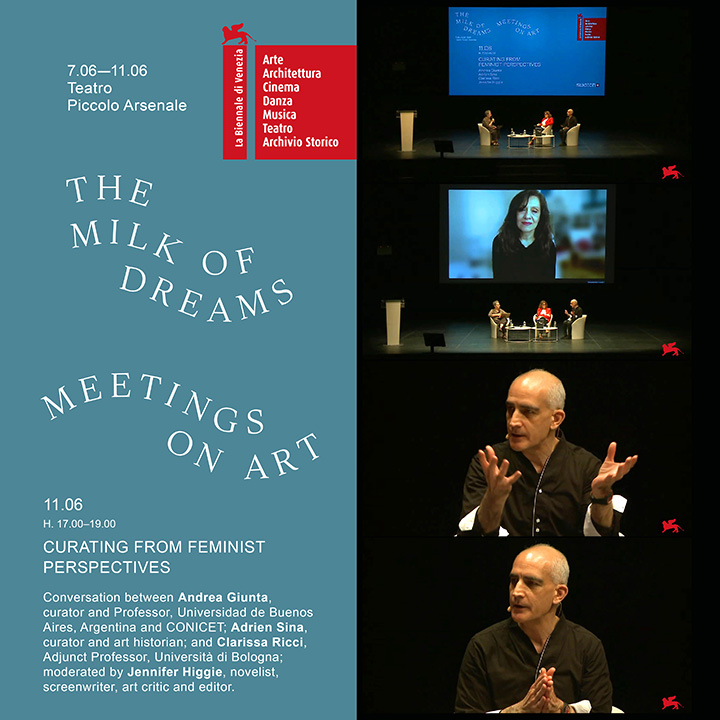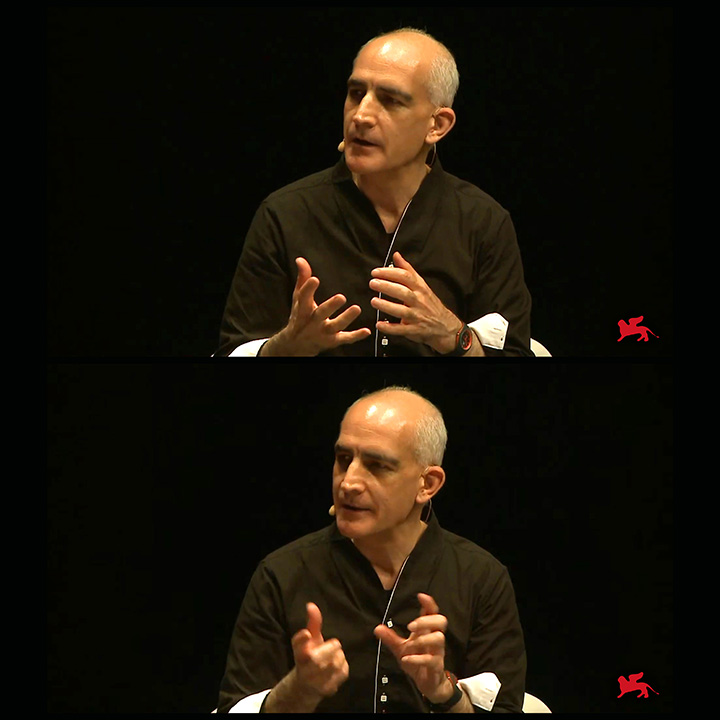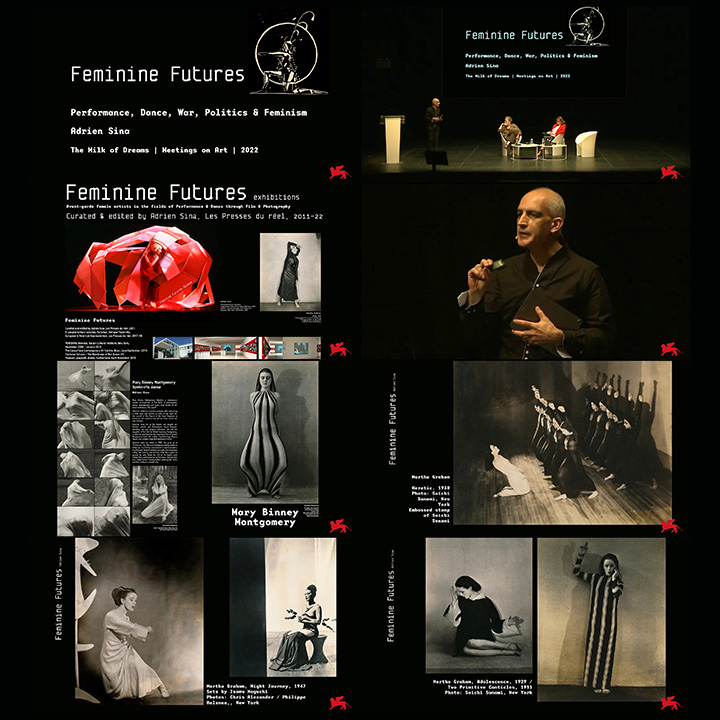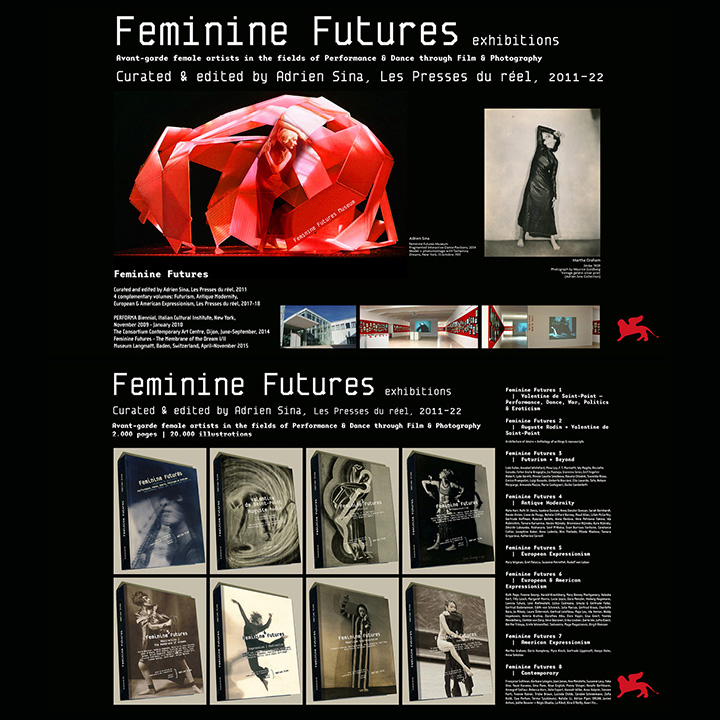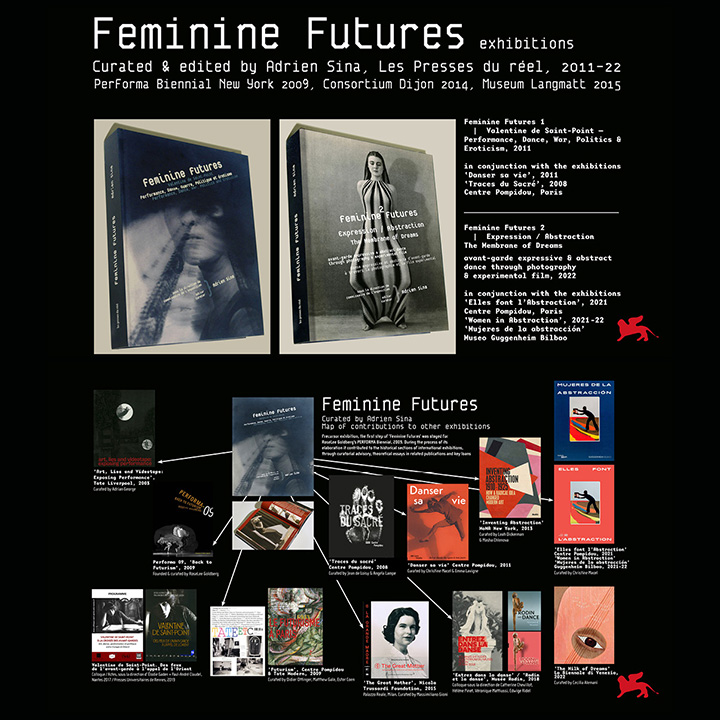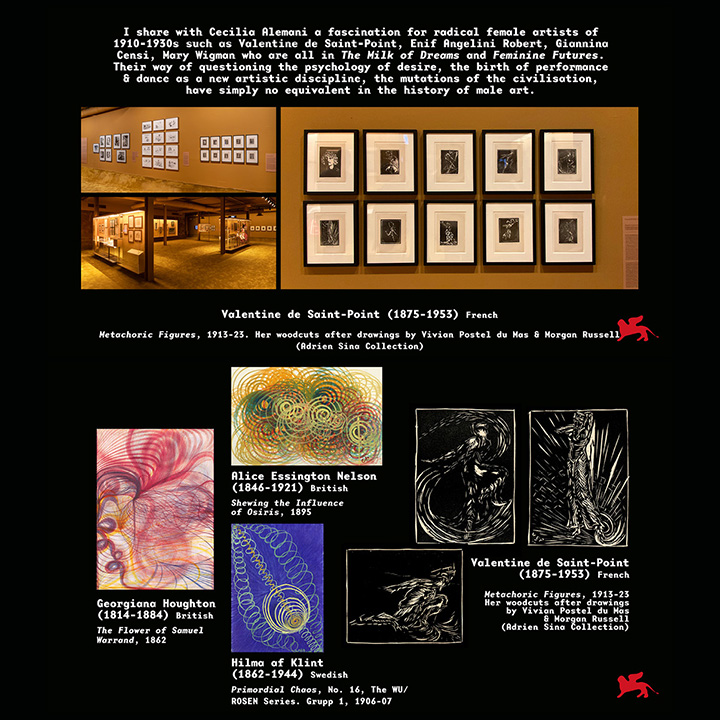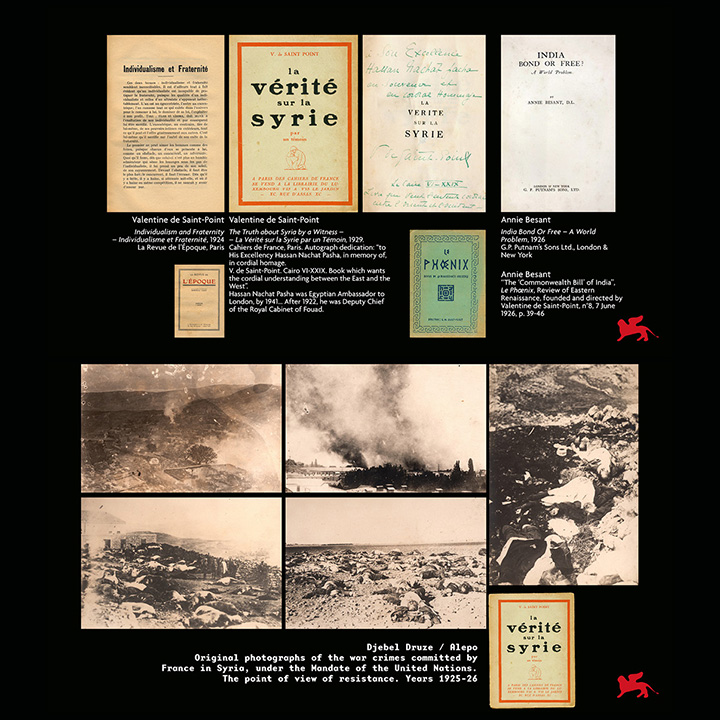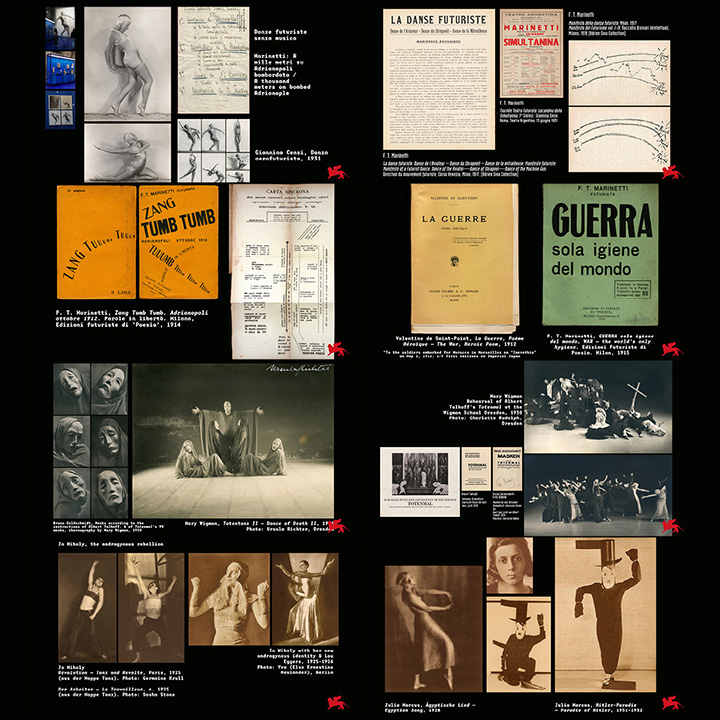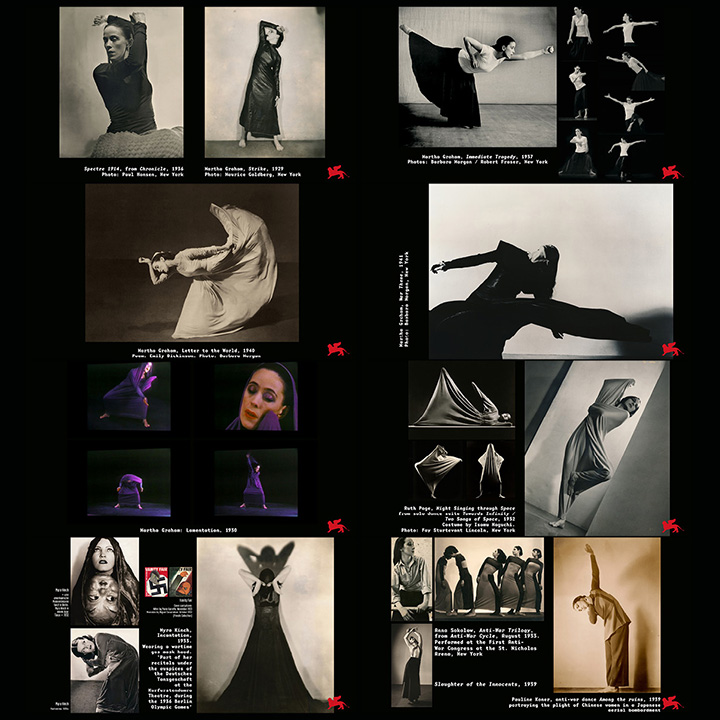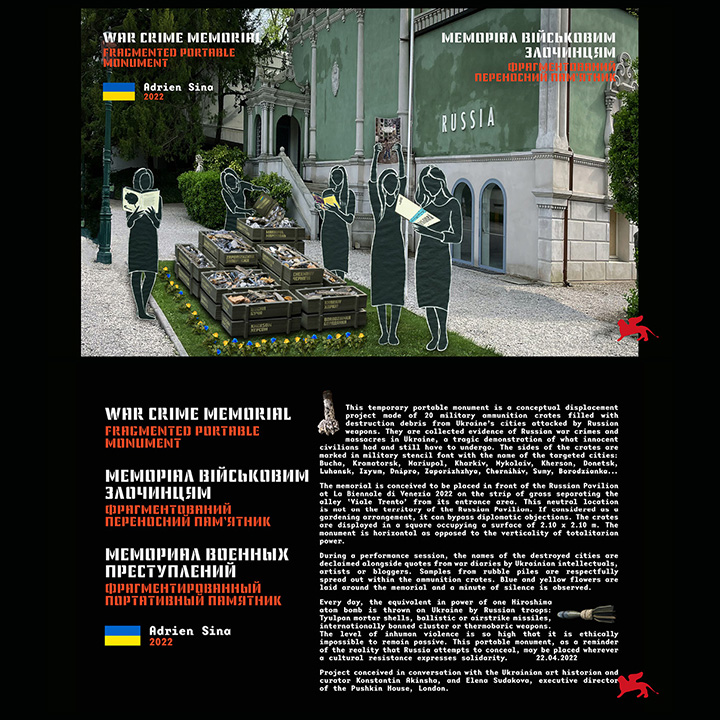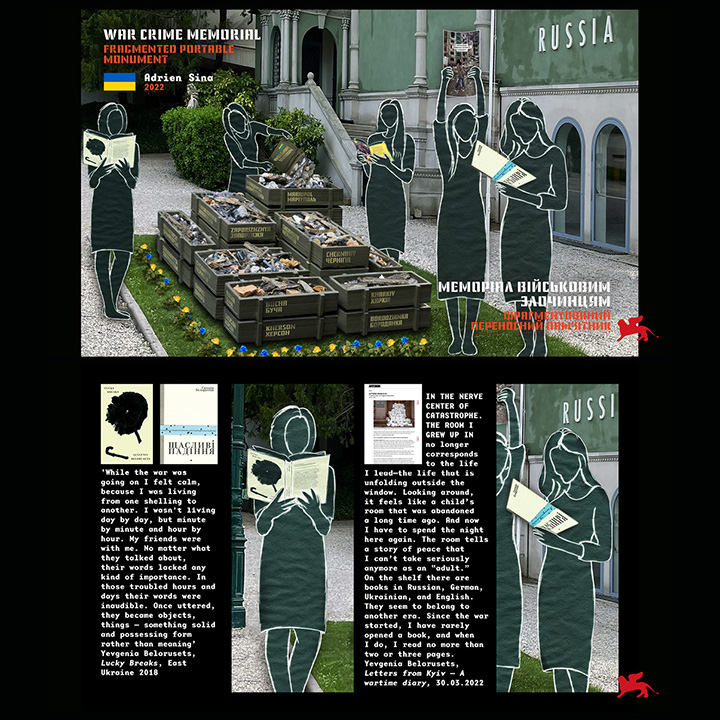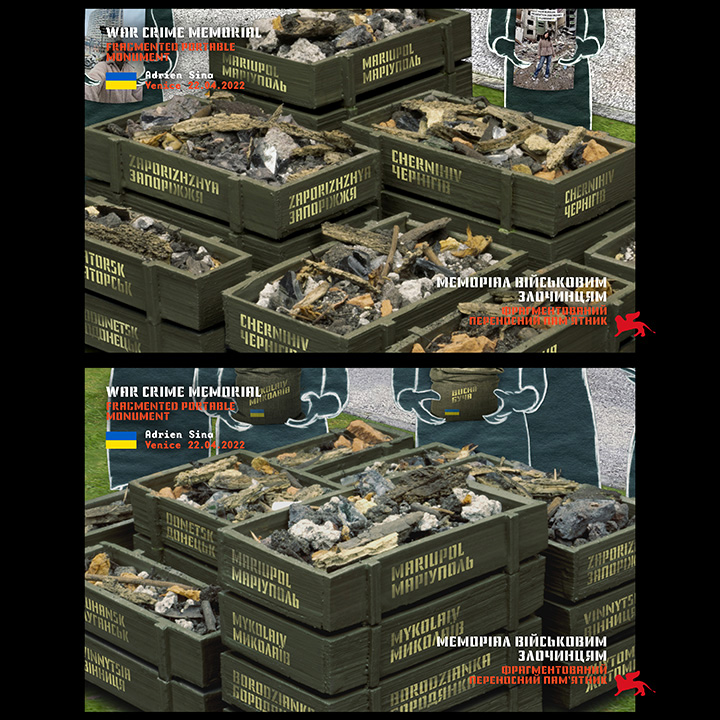

La Biennale di Venezia, Meetings on Art Adrien Sina | Feminine Futures Curating from Feminist Perspectives, Teatro Piccolo Arsenale, 11.06.2022
I share with Cecilia Alemani a fascination for radical female artists of 1910-1930s such as Valentine de Saint-Point, Enif Angelini Robert, Giannina Censi, Mary Wigman who are all in Feminine Futures and The Milk of Dreams. Their way of questioning the psychology of desire, the birth of performance & dance as a new artistic discipline, the mutations of civilisation, have no equivalent in the history of male art. Their dances of war and trauma, their innovative war diaries or political activism anticipated a long history of artists' replies to war and oppression: Jo Mihaly, Julia Marcus, Martha Graham, Myra Kinch, Anna Sokolow, Pauline Koner, Yoko Ono...
|

|
|
|
|
|
|
|
|
|
|
|
|
|
|
|
|
|
|
War Crime Memorial Adrien Sina, Venice, 22.04.2022
|
|
|
|
|
|
|
|
|
War Crime Memorial This temporary portable monument is a conceptual displacement project made of 12 military ammunition crates filled with destruction debris from Ukraine's cities attacked by Russian weapons. They are collected evidence of Russian war crimes and massacres in Ukraine, a tragic demonstration of what innocent civilians had and still have to undergo. The sides of the crates are marked in military stencil font with the name of the targeted cities: Bucha, Kramatorsk, Mariupol, Kharkiv, Mykolaiv, Kherson, Donetsk, Luhansk, Izyum, Dnipro, Zaporizhzhya, Chernihiv, Sumy, Borodzianka... The memorial is conceived to be placed in front of the Russian Pavilion at the Venice Biennale 2022, it can also be transported to other venues such as Russian Embassy gates. The crates are displayed in a square occupying a surface of 2.10 x 2.10 m on the strip of grass separating the alley Viale Trento from the entrance area of the Russian Pavilion in the Giardini. The monument is horizontal as opposed to the verticality of totalitarian power. During a performance session, the names of the destroyed cities are destined to be declaimed alongside quotations from war diaries by Ukrainian intellectuals, artists or bloggers. Rubble samples from each city would be respectfully laid in the ammunition crates, alongside with debris of Tyulpan mortar shells, ballistic or airstrike missiles, and internationally banned cluster or thermobaric weapons. Blue and yellow flowers would be laid around the memorial and a minute of silence would be observed. Unrealised, it nonetheless constituted the first curatorial act of my exhibition series War | oppression | Dystopia. It received public attention at the Venice Biennale Meetings on Art, on 11 June 2022, as the culmination of my talk on Feminine Futures and the early 20th-century history of artists' diaries and performances reacting to war. Adrien Sina, 22.04.2022 |
|
 |
Curating from Feminist Perspectives, Teatro Piccolo Arsenale, 11.06.2022 La Biennale di Venezia / Venice BiennaleChannel: Time codes of Adrien Sina's interventions: main talk: 0:51:31 - 1:14:00 |


| © Adrien Sina |

